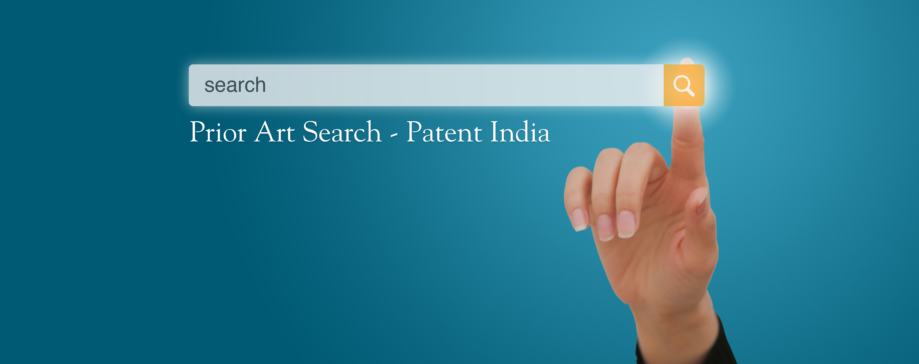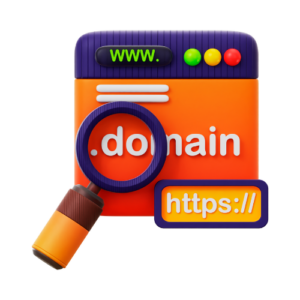
Alternative Dispute Resolution (ADR) encompasses a range of methods, including mediation, arbitration, and negotiation, designed to resolve disputes outside of court. For example, in a recent patent dispute between two technology firms, ADR was employed through mediation, where a neutral third party facilitated discussions. This approach not only avoided a lengthy court battle but also resulted in a mutually beneficial licensing agreement that allowed both companies to continue innovating without further conflict. For patent-related conflicts, ADR provides a quicker, cost-effective, and confidential alternative to traditional litigation. It is particularly valuable for addressing complex patent issues while preserving business relationships.
At Patentsindia, we specialize in ADR services for patent disputes, offering expert guidance to ensure equitable resolutions that protect your intellectual property and business interests. Whether dealing with infringement claims, licensing disagreements, or technology transfer conflicts, our ADR strategies are tailored to meet your specific needs.
Understanding ADR for Patent-Related Conflicts
ADR is a structured yet flexible approach to resolving patent disputes without the adversarial nature of courtroom battles. It leverages private proceedings, neutral facilitators, and customizable processes to achieve mutually beneficial outcomes.
Common Scenarios for ADR in Patent Disputes:
- Patent Infringement: Addressing claims of unauthorized use or replication of patented inventions.
- Licensing Disputes: Resolving conflicts over licensing terms, royalties, or compliance.
- Technology Transfer Issues: Negotiating disagreements related to intellectual property rights in collaborative ventures.
ADR is widely recognized for its ability to streamline conflict resolution, especially in industries where confidentiality, speed, and cost-efficiency are paramount. For example, in the pharmaceutical sector, ADR is commonly used to resolve disputes over licensing agreements, enabling companies to maintain competitive timelines for drug launches. Similarly, in the technology industry, arbitration often addresses patent infringement claims efficiently while protecting sensitive proprietary information from public exposure.
ADR Options Tailored for Patent Conflicts
Mediation
A neutral mediator facilitates dialogue between parties to reach a voluntary, mutually acceptable agreement. Ideal for preserving relationships, especially in licensing or partnership disputes.
Arbitration
A neutral arbitrator hears both parties and provides a binding or non-binding decision. Offers a structured process with the benefits of confidentiality and enforceability.
Negotiation
Direct discussions between parties aimed at resolving disputes amicably. Effective for addressing straightforward conflicts, such as royalty disputes or compliance issues in licensing agreements.
Expert Determination
A technical expert evaluates the dispute and provides a resolution based on specialized knowledge. Frequently used for resolving technical disagreements in patent claims or licensing terms.
Enhances Strategic Planning
By providing insights into the competitive patent landscape, FTO analysis helps businesses align their strategies with market realities, ensuring informed decision-making and long-term success.
Why Choose ADR Over Litigation?
Aspect
ADR
Litigation
Cost
Lower legal and procedural costs.
Significantly higher expenses.
Time
Faster resolution, typically weeks or months.
Lengthy processes often spanning years.
Confidentiality
Maintains privacy of sensitive information.
Court proceedings are generally public.
Flexibility
Customizable process and outcomes.
Bound by rigid procedural rules.
Preservation of Relationships
Encourages collaboration and reduces hostility.
Often adversarial, straining relationships.
Choosing ADR provides businesses with a practical, efficient, and collaborative approach to resolving disputes, making it an ideal alternative to litigation in many cases.
Key Benefits of ADR for Patent Disputes:
Cost-Effective
Significantly reduces legal and procedural costs compared to court litigation.
Time-Saving
Resolves disputes faster, enabling businesses to focus on innovation and growth.
Confidentiality
Protects sensitive business and technical information from public disclosure.
Flexibility
Offers customizable processes and solutions tailored to the parties’ needs.
Relationship Preservation
Encourages collaboration and reduces hostility, making it ideal for ongoing partnerships or licensing agreements.
Common Patent Disputes Resolved Through ADR
Ideal Scenarios for ADR in Patent Issues:
Infringement Claims
Resolving allegations of unauthorized use or production of patented inventions.

Licensing Agreement Breaches
Addressing non-compliance with licensing terms or royalty disputes.

Royalty Payment Disputes
Negotiating fair compensation for the use of patented technologies.

Joint Patent Ownership Conflicts
Resolving disagreements over rights and responsibilities in jointly held patents.


Technology Transfer Agreements
Clarifying terms and resolving conflicts in collaborative ventures involving intellectual property.

Trusted Partners in Resolving Patent Disputes Why Choose Patentsindia for ADR Services?
Experienced Professionals
Our team includes skilled mediators, arbitrators, and patent attorneys with extensive expertise in intellectual property disputes.
Tailored Solutions
Customized approaches for startups, MSMEs, and large enterprises to resolve conflicts efficiently.
Proven Success
A track record of achieving equitable resolutions in complex patent cases.
Commitment to Confidentiality
Ensuring sensitive business information remains secure throughout the ADR process.
Cost-Effective Services
Transparent pricing models designed to deliver value without compromising quality.
Comprehensive ADR Support for Patent-Related Conflicts
At Patentsindia, we offer a full suite of ADR services to address patent disputes effectively
Mediation Services
Facilitating constructive dialogue between parties to achieve mutually agreeable resolutions. Ensuring the process remains collaborative and focused on preserving relationships.
Arbitration Support
Representing clients in binding or non-binding arbitration proceedings. Preparing detailed submissions and arguments to ensure favorable outcomes.
Negotiation Assistance
Guiding direct discussions between parties to resolve disputes amicably. Providing strategic advice to secure agreements that align with your business goals.
Expert Opinions and Advisory
Delivering technical and legal insights to aid in dispute resolution. Leveraging expertise in patent claims, licensing terms, and technology evaluations.
Drafting Settlement Agreements
Preparing enforceable agreements that align with both parties’ interests. Ensuring clarity and compliance with legal standards.
Trusted Partners in Resolving Patent Disputes Why Choose Patentsindia for ADR Services?
Experienced Professionals
Our team includes skilled mediators, arbitrators, and patent attorneys with extensive expertise in intellectual property disputes.
Tailored Solutions
Customized approaches for startups, MSMEs, and large enterprises to resolve conflicts efficiently.
Proven Success
A track record of achieving equitable resolutions in complex patent cases.
Commitment to Confidentiality
Ensuring sensitive business information remains secure throughout the ADR process.
Cost-Effective Services
Transparent pricing models designed to deliver value without compromising quality.
Step-by-Step Approach to ADR for Patent Disputes
Initial Assessment
Evaluate the nature of the dispute and recommend the most suitable ADR mechanism. Assess potential outcomes to align with the client’s business objectives.
Selecting Neutral Parties
Identify and appoint mediators, arbitrators, or technical experts with relevant expertise. Ensure impartiality and competence in handling the specific issues involved.
Facilitation of Discussions
Organize structured meetings, hearings, or negotiations tailored to the chosen ADR method. Maintain focus on achieving practical and mutually beneficial solutions.
Resolution and Agreement Drafting
Draft clear and enforceable settlement agreements that protect both parties’ interests. Address potential contingencies to prevent future disputes.
Implementation and Follow-Up
Provide support for implementing settlement terms and ensuring compliance. Offer post-settlement advisory services as needed.

Resolve Patent Disputes Quickly and Efficiently with ADR Services
For instance, a prominent case involved two pharmaceutical companies disputing over licensing terms for a patented drug formula. Through ADR, a neutral mediator facilitated discussions, leading to a resolution within three weeks. The settlement allowed both parties to collaborate on production while ensuring fair royalty distribution. This avoided a lengthy and public litigation process, showcasing the effectiveness of ADR in maintaining confidentiality and fostering mutual gains.
Avoid the time, cost, and stress of litigation. Partner with Patentsindia for expert ADR solutions tailored to your patent dispute needs. Protect your intellectual property and maintain valuable business relationships with our professional support.
FAQs
What is the difference between mediation and arbitration?
Mediation involves a neutral third party facilitating negotiations, while arbitration results in a binding or non-binding decision by an arbitrator after hearing both sides.
Is arbitration legally binding?
Arbitration can be binding or non-binding, depending on the agreement between the parties. Binding arbitration decisions are enforceable in court.
How long does the ADR process take?
The duration varies based on the complexity of the dispute and the chosen ADR mechanism. Most cases resolve within weeks to a few months, significantly faster than litigation.
Can ADR be used for international patent disputes?
Yes, ADR is frequently used for cross-border patent conflicts, providing a neutral and efficient forum for resolution.